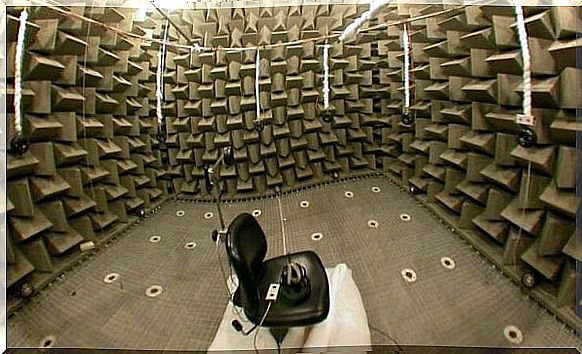What Happens After 30 Minutes Of Silence And Loneliness?

We need moments of solitude, silence and interruption to stay motivated and authentic. It’s like pressing restart. It makes every single piece of our lives more meaningful and makes it fit together better.
It gives us mental clarity to better understand people and define priorities and personal goals.
Miles Davis, the famous jazz trumpeter and composer, gave this advice to young musicians who wanted to reach his level of mastery and originality. If there was no silence, music would not be what it is. It was a piece of advice they would never forget.
“A person’s value is measured by the loneliness they can bear.”
–Friedrich Nietzsche–
Davis told them that life, as a musical score, finds rhythm by combining moments of activity with moments of loneliness, silence and reflection. Only then can we find the inspiration and melody within us. A tune we would not otherwise hear.
This is undoubtedly a wise piece of advice. But as logical as it may seem, we do not always practice it effectively. In our modern world, isolation is immense, but paradoxically, moments of loneliness (true and healthy) are few and far between.
We are talking about the hyperactivity, hyperproductivity and hyperstimulation we are experiencing today. We spend the day working on technology, performing tasks, meeting goals, satisfying others involved in noise from our surroundings.
This incessant rumbling and activity does not always deserve the worry it creates or the time it deprives us of.
If we add to this that our relationships sometimes bring us more loneliness than happiness, we can understand why depression and similar diseases grow every year…

Moments of loneliness that are good for our brains
We must first of all mention one important fact: loneliness is good for us and restores our physical and mental health.
However, this is only true when these moments of loneliness and isolation go hand in hand with subsequent connection to the world. Its sounds, rhythm, colors, sensory pleasures and significant social relationships.
For humans are not created to live in complete and permanent isolation. A striking example of this is the anechoic chamber at Orfield Laboratories in Minneapolis.
In this room, various organizations study the sound of their products: telephones, motorcycles, washing machines. It is an extremely quiet room where 99.99% noise is absorbed by steel and fiberglass walls. Psychological experiments happen here too.
On average, no one has managed to be in the anecoic chamber for more than half an hour. People often become desperate and panicked because they cannot take silence so empty and suffocating.
The silence is so extreme that people often hear the sound of their own heart beating or their blood circulation. Our brains are not prepared for this. It goes against our nature, our genetic programming.
Ultimately, we are social beings who need connection with our environment. When our environment lacks stimulus, we panic.
While total isolation can have negative effects, occasional and controlled loneliness has many benefits. Scientists tell us that moments of loneliness spread throughout the day are like “electric shocks” that can restart us and help restore our energy, meaning, and inspiration.

Schedule times of loneliness to see health benefits
We live in a society that loves independence, yet obeys and intensifies cultural norms of hyperactivity. New technologies make it easier for us to be more connected to each other than ever before.
Our cities are increasingly overcrowded. We are in artificial light more and more often. We exercise less because there are many things we can do comfortably.
Doctors, neurologists and psychologists tell us that our brains are connected very differently now than they were 100 years ago. We receive so many stimuli throughout the day and from so many sources that we are forced to cope with this sensory chaos.
What we need is to be reassured. We need silence and loneliness from time to time so that we can integrate the flood of information. So we can find meaning in our lives.

But some people do not understand why loneliness is good. Some are even afraid of it. Being alone with your thoughts can be just as scary as being in a laboratory anecho chamber for half an hour.
Just as when we hear the sound of our own body in this chamber, loneliness can infer the emptiness of our own being.
Even in a more comfortable place, loneliness draws our attention to our fears, anxieties, and the knot of our worries.
Let’s be brave. Let’s plan a few moments of solitude each day where we can have a cup of coffee with ourselves and clear our minds. Where we let the tide of worry go down and see what really needs to be done. Let’s turn loneliness into a conscious form of self-care.









